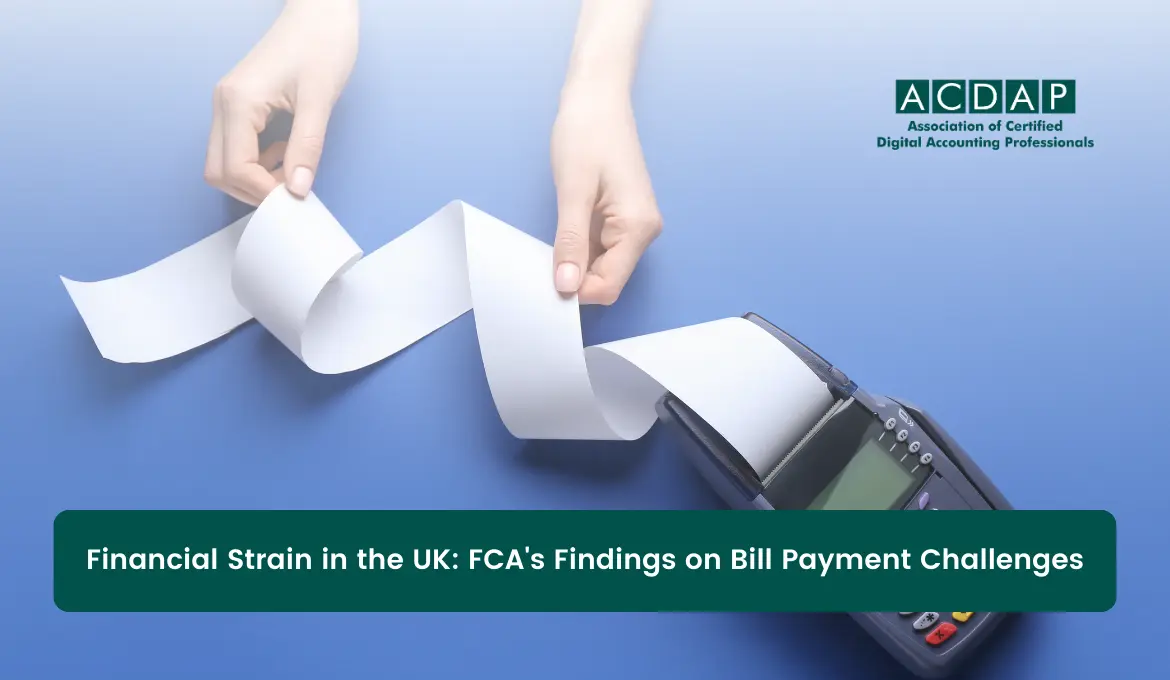The Financial Conduct Authority (FCA) has published observations that paint a troubling picture of financial strain in the UK. These observations reveal significant challenges faced by many households in managing bill payments.
These insights highlight the urgent need for comprehensive strategies to support those struggling financially and ensure long-term economic stability.
The Scope of Financial Strain
The FCA's report underscores the widespread financial difficulties in the UK. According to the observations, a significant portion of the population is grappling with issues related to bill payments. Rising living costs, stagnant wages, and unexpected economic shocks have contributed to a precarious financial environment for many. The COVID-19 pandemic exacerbated these problems, leading to job losses, reduced incomes, and increased reliance on credit.
One of the most alarming statistics from the FCA's report is that nearly a third of UK households struggle to keep up with their monthly bills. This includes rent or mortgage, utility bills, and food costs. The pressure to meet these obligations often leads to difficult choices, such as prioritising which bills to pay and which to delay, potentially resulting in long-term financial damage and increased debt.
Factors Contributing to Financial Strain
Several factors contribute to the financial strain experienced by UK households. One primary issue is the rising cost of living. Over the past decade, prices for essentials such as housing, energy, and food have increased significantly. While inflation has been a critical driver of these cost increases, wages have not kept pace, leading to a squeeze on household budgets.
The FCA also highlights the role of insecure employment in exacerbating financial difficulties. The rise of the gig economy and zero-hour contracts has created a workforce with unpredictable incomes and limited job security. This financial instability makes it challenging for individuals to plan and manage their finances effectively, often leading to reliance on high-cost credit options to bridge gaps between paycheques.
In addition, the report points to the lack of financial literacy as a significant barrier to effective money management. Many individuals need more expertise to explore complex financial products and make informed decisions about their money. This gap in understanding can lead to poor economic choices, increased debt, and a greater likelihood of falling behind on bill payments.
The Impact on Mental Health
The financial strain experienced by many UK households has far-reaching implications, extending beyond just economic hardship. The FCA's findings indicate a strong correlation between financial difficulties and mental health issues. The stress and anxiety associated with struggling to make ends meet can have severe impacts on individuals' well-being.
Constant worry about money can lead to various mental health problems, including depression, sleep disorders, and anxiety. The stigma and shame often associated with financial difficulties can further exacerbate these issues, creating a cycle where poor mental health leads to worsened financial management and vice versa. Addressing the mental health aspects of financial strain is crucial for developing comprehensive support systems for those in need.
Vulnerable Populations at Greater Risk
Certain groups within the UK are particularly vulnerable to financial strain. The FCA's report identifies single-parent households, low-income families, and individuals with disabilities as among the most at risk. These populations often face additional barriers to financial stability, such as higher living costs, limited access to affordable credit, and reduced earning potential.
For instance, single parents may need help to balance work and childcare responsibilities, limiting their ability to secure stable, full-time employment. Low-income families often have little to no savings to fall back on in times of crisis, making them more susceptible to financial shocks. Individuals with disabilities may encounter higher living expenses related to their care needs and face discrimination in the job market, further limiting their financial opportunities.
The Role of Credit and Debt
Credit is significant in the financial struggles of many UK households. The FCA's findings reveal that a considerable number of individuals rely on credit to manage their day-to-day expenses, often leading to a difficult-to-break cycle of debt. High-interest loans, credit cards, and overdrafts can provide temporary relief but ultimately contribute to long-term financial instability.
The report highlights that many people use credit to cover basic living expenses like food and utility bills. This reliance on credit for essential needs indicates insufficient income and inadequate social safety nets. The resulting debt burden can become unmanageable, leading to missed payments, increased borrowing costs, and further financial distress.
Policy Recommendations and Support Measures
Addressing the financial strain faced by UK households requires a multifaceted approach. The FCA's report suggests several policy recommendations and support measures to alleviate the burden on those struggling with bill payments.
One key recommendation is to improve financial education and literacy. By equipping individuals with the skills necessary to manage their finances effectively, they can make better-informed decisions and avoid the issues that lead to debt and financial instability. Financial education should be integrated into school curricula and accessible to adults through community programmes and online resources.
Another crucial area for policy intervention is the regulation of high-cost credit products. Strengthening consumer protections and ensuring access to affordable credit options can help prevent individuals from falling into debt traps. This may include capping interest rates, providing better transparency around loan terms, and promoting the availability of low-interest credit alternatives.
The FCA also recommends enhancing social safety nets to provide more robust support for those in financial distress. This includes increasing access to benefits, improving the adequacy of support payments, and ensuring that individuals can access emergency financial assistance when needed. Strengthening these safety nets can help prevent short-term financial difficulties from escalating into long-term crises.
Conclusion
The FCA's findings on UK households' financial strain highlight the urgent need for comprehensive action to address bill payment challenges. Rising living costs, insecure employment, and insufficient financial literacy contribute to widespread financial difficulties with significant social and economic implications. By implementing targeted policy measures and support systems, the UK can help alleviate the burden on struggling households and promote long-term financial stability and well-being.
Addressing these issues demands a collaborative effort from the government, financial institutions, and community organisations to create an environment where all individuals have the resources and guidance they need to properly manage their finances and avoid debt pitfalls and financial distress. The FCA's report serves as a crucial call to action, emphasising the importance of tackling financial strain head-on to build a more resilient and inclusive economy.


























